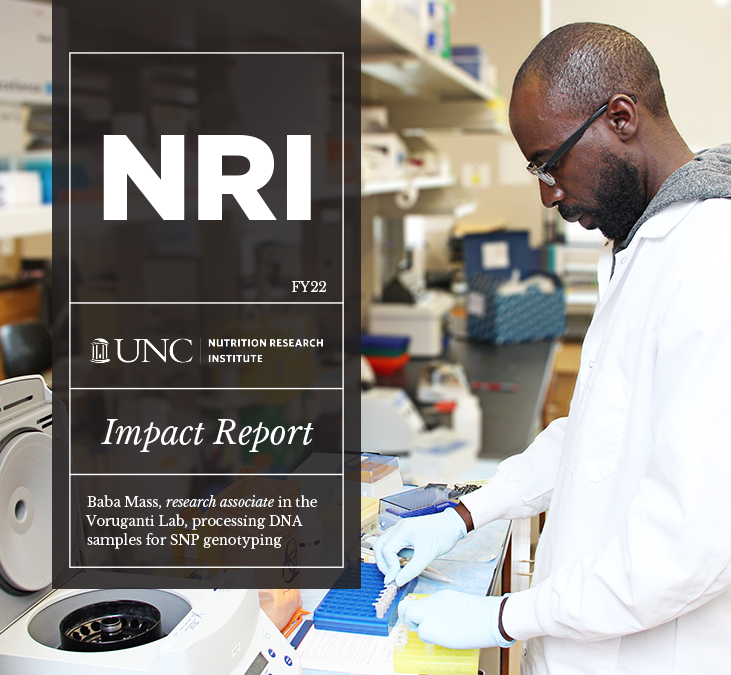


Appetite for Life: Nutrition and Other Factors to Combat Cancer

Breaking the Obesity-Cancer Link
It was in graduate school at UNC-Chapel Hill that Nutrition Research Institute (NRI) Director Stephen Hursting first got interested in cancer research. After completing his MPH and working for two years as a research associate at Seattle’s Fred Hutchinson Cancer...
How the 1982 National Champion Tar Heels Inspired New NRI Director Stephen Hursting, PhD
Stephen Hursting, PhD, can still remember visiting Carolina for the first time before beginning his graduate studies at UNC-Chapel Hill. “I came on a beautiful, sunny spring day. It was 1982 and UNC had just won the [NCAA] National Championship on Michael Jordan’s...
Hursting moves into 16th year of Breast Cancer Research Foundation grant
September 17, 2019 – “Our work has evolved from asking Is obesity increasing cancer risk? and What are the mechanisms linking obesity and cancer?” he says. “We have largely answered the first question and are still working on the second, but our focus really has turned to What are we going to do about it?”

One Size Won’t Fit All
August 20, 2019 – Nearly 35 percent of Americans are considered obese — a diagnosis that has become so common the American Medical Association recognizes it as a chronic disease. While the diagnosis is the same for all, the treatments vary; what works for one person typically doesn’t work for another. In response, researchers from across UNC have joined forces to tackle this ever-growing problem.
